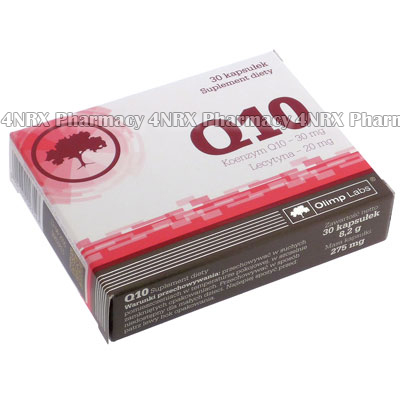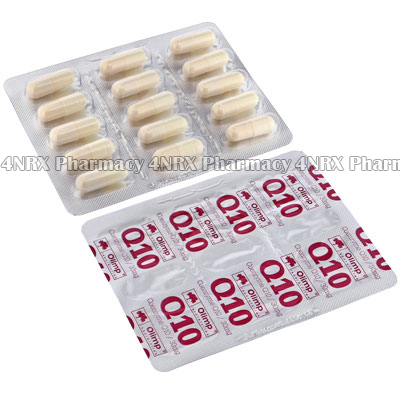 |
Home  General Health General Health  Q10 (Q10 Coenzyme/Lecithin) Q10 (Q10 Coenzyme/Lecithin) |
|
|||||||||
|
|
Q10 (Q10 Coenzyme/Lecithin)
What is Q10 (Q10 Coenzyme/Lecithin) used for? Q10 (Q10 Coenzyme/Lecithin) is an oral dietary supplement used to treat neurological disorders, liver ailments, skin conditions, anxiety, or high levels of cholesterol. The medication contains natural fats and enzymes that are essential to the health of cells in the body and can prevent their deterioration. Your doctor may also recommend its use for other unlisted conditions.How should I use Q10 (Q10 Coenzyme/Lecithin)? Always use the directions provided by your doctor and those included with the packaging while using Q10 (Q10 Coenzyme/Lecithin) to get the best results from treatment. One capsule is normally administered each day along with a large glass of water, but your particular directions may differ based on the condition being treated and your current health. Never split open the capsules or dissolve their contents as this may destroy or change their effects.What are the side effects of Q10 (Q10 Coenzyme/Lecithin)? Q10 (Q10 Coenzyme/Lecithin) may cause side effects in some patients such as:
Immediately contact your physician if you experience any unusual or worrying symptoms to make sure any necessary adjustments are made to your dosage or application frequency to prevent further problems from occurring. Also disclose if you experience any signs of an allergic reaction including severe skin reactions, swelling, or trouble breathing. Please Note Strictly use Q10 (Q10 Coenzyme/Lecithin) as prescribed and follow all instructions provided by your doctor. Safe, suitable, and optimum dosage can vary and is dependent on the patient`s health and medical history, as well as the condition you are treating. Q10 (Q10 Coenzyme/Lecithin) may not be safe or suitable for all patients. Always ensure your doctor is informed if you are pregnant or breastfeeding, using any other type of medication (including non-prescription medicine, vitamins, and supplements), as well as if you have any allergies, other illnesses, or pre-existing medication conditions. Seek immediate medical attention or proceed to your nearest accident and emergency department if you suffer a hypersensitive or allergic reaction. Symptoms usually present during a reaction of this nature include difficulty breathing or swallowing, swelling of the limbs or face, tight chest, hives, and skin rashes. 

|
||||||||||||||||||